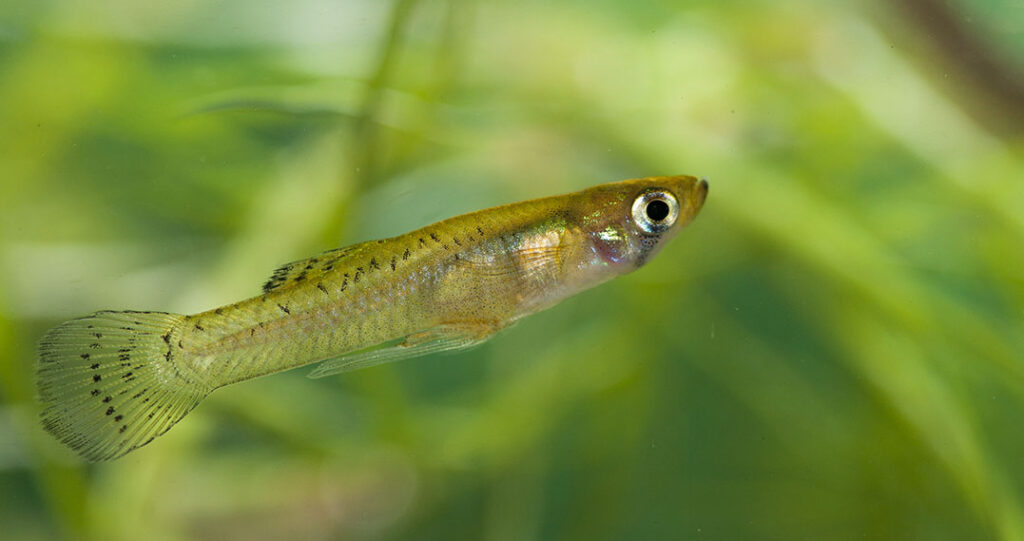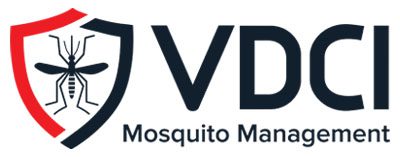When most people think of mosquito abatement, they think of trucks or airplanes spraying insecticides to control the biting adult mosquitoes. However, what many don’t realize is that this spraying is just one part of any well managed mosquito control program. Scientifically-based modern mosquito abatement programs use what is called Integrated Mosquito Management (IMM) to reduce their mosquito populations while minimizing negative effects on the environment. As the name implies, these programs integrate all available resources, such as larval and adult surveillance, disease testing, source reduction, public education and GIS mapping, in addition to pesticide applications, in order to provide the best mosquito control possible and protect the public health. One of the most important aspects of a complete Integrated Mosquito Management program is the use of biological mosquito control agents.
So what are biological mosquito control agents?
While they may sound intimidating, biological mosquito control agents are simply naturally occurring organisms, such as bacteria or predatory animals, which can be used by mosquito control professionals to reduce local mosquito populations. Biological mosquito control agents are often an important tool in mosquito control because, when used correctly, they are both environmentally friendly and highly effective. There are a few methods of biological mosquito control to be aware of – some that are effective and some that are not.
Biological control of mosquito larva using larvicides
The most commonly used biological control agent is a naturally occurring soil bacteria called Bacillus thuringiensis israelensis, or Bti. Bti was discovered in Israel in 1977 and quickly became commercially available once it was shown to be an inexpensive, effective, and very target specific mosquito larvicide. Bti larva control products are composed of microscopic crystal proteins that only kill mosquito, black fly, and certain midge larvae upon ingestion. From dry, corn cob-based granules, to water-based liquids, to time release briquets, Bti larva control products are available for controlling mosquito larvae in a variety of circumstances and can be applied using many different types of application equipment. Small areas of standing water with thick vegetation can be treated with power backpack blowers, while large marshes or irrigated pastures can be treated with airplanes or helicopters, and storm drains or municipal catch basins may be treated by hand with time release briquets. Because of its effectiveness and versatility, as well as its environmentally sound nature, Bti products are now the preferred biological mosquito control agents for most integrated mosquito management programs, including those that VDCI manages. A similar biological control agent is Bacillus sphaericus (Bs). Bs larvicides are also produced in various formulations and are very target specific to mosquito larvae. However, because the protein toxins that Bs produces are different from the Bti toxins, there are issues that somewhat limit the situations where Bs should be used. First, Bs tends to be more expensive than Bti, which can be a limiting factor for many IMM programs, but it also tends to have a longer residual effect, which then offsets some of this additional expense. Second, while Bs is highly effective in controlling mosquitoes of the Culex genus, as well as other multi-voltine (breeds multiple times per year) species, it is not as effective in controlling many of the uni-voltine (breeds only once per year) species, such as those within the genus Aedes. For these reasons, the strategic use of Bacillus sphaericus as a biological mosquito control agent can be very valuable when the decision is made by a well informed mosquito control program manager.

Mosquito fish for biological control of mosquito vectors
The use of predatory fish that feed on mosquito larvae is one of the original biological methods for controlling larval mosquitoes and managing larval habitats. The most frequently used fish for mosquito control is the fresh water Gambusia affinis, commonly known as the mosquito fish. This native southeastern United States species has been widely introduced around the world for mosquito control; however, stocking fish is not always a legal, practical or viable mosquito control option. Because the introduction of non-native fish species into some aquatic environments is not only illegal, but can also have dramatic negative effects on native species and the environment, a careful assessment of each site must be made prior to any stocking of fish as biological control agents. In some cases an effective alternative is to stock native fish species such as fathead minnows (Pimephales promelas) or young bluegill (Lepomis macrochirus), while other times it may be acceptable to introduce non-native species into isolated mosquito breeding habitat such as unused swimming pools or ornamental ponds. Regardless of the circumstances, state and federal regulations should always be consulted prior to any use of fish as a biological control agent.
Are birds and bats effective for biological mosquito control?
Unfortunately, and contrary to popular belief, birds and bats are not effective biological control agents for mosquitoes. Because mosquitoes are so small, and have such minimal nutritional value, neither birds nor bats select mosquitoes as a primary food source in the wild.
Are dragonflies effective biological mosquito control agents?
That being said, birds, bats and other occasional mosquito predators like dragonflies all play important roles in the environment and can certainly be encouraged to thrive in mosquito habitats. Dragonfly nymphs are voracious, opportunistic predators in aquatic habitats, so some mosquito control benefit may be seen by creating dragonfly friendly habitats around yards with ornamental ponds and water features. Some beneficial plants to consider planting around the perimeter of a small pond are pickerel weed, arrowhead, spatterdock, lizard’s tail, and lilies. These plants not only provide excellent cover for the dragonfly larvae, but also provide nice platforms for adult dragonflies to perch or mate on.
Thus, when used correctly and strategically, biological mosquito control agents are an extremely safe and effective tool for mosquito control professionals and should always be considered as part of a comprehensive Integrated Mosquito Management program. Integrated Mosquito Management programs that are able to effectively incorporate as many control measures as possible are typically the most successful at reducing the mosquito populations in their areas, thereby minimizing the risk of mosquito-borne disease transmission to their residents.
VDCI is committed to public education and spreading awareness throughout the U.S. about the dangers of mosquito-borne diseases and their preventability, with the overarching goal of reducing illness and fatality statistics. Our dedicated and experienced staff works tirelessly to prevent the spread of mosquito-borne diseases in all of the contracts we service. If you would like more information about any aspect of an Integrated Mosquito Management (IMM) Plan, including mosquito surveillance, disease testing, or adult control, please contact Vector Disease Control International (VDCI) and we will help you get started immediately.
Contact Our Biological Mosquito Control Experts
We are government partners in Integrated Mosquito Management. Complete the form below or call 800-413-4445 to learn how VDCI can help implement an Integrated Mosquito Management program or support an existing program in your community.
 Since 1992, Vector Disease Control International (VDCI) has taken pride in providing municipalities, mosquito abatement districts, industrial sites, planned communities, homeowners associations, and golf courses with the tools they need to run effective mosquito control programs. We are determined to protect the public health of the communities in which we operate. Our mosquito control professionals have over 100 years of combined experience in the field of public health, specifically vector disease control. We strive to provide the most effective and scientifically sound mosquito surveillance and control programs possible based on an Integrated Mosquito Management approach recommended by the American Mosquito Control Association (AMCA) and Centers for Disease Control and Prevention (CDC). VDCI is the only company in the country that can manage all aspects of an integrated mosquito management program, from surveillance to disease testing to aerial application in emergency situations.
Since 1992, Vector Disease Control International (VDCI) has taken pride in providing municipalities, mosquito abatement districts, industrial sites, planned communities, homeowners associations, and golf courses with the tools they need to run effective mosquito control programs. We are determined to protect the public health of the communities in which we operate. Our mosquito control professionals have over 100 years of combined experience in the field of public health, specifically vector disease control. We strive to provide the most effective and scientifically sound mosquito surveillance and control programs possible based on an Integrated Mosquito Management approach recommended by the American Mosquito Control Association (AMCA) and Centers for Disease Control and Prevention (CDC). VDCI is the only company in the country that can manage all aspects of an integrated mosquito management program, from surveillance to disease testing to aerial application in emergency situations.

